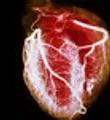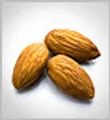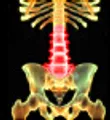ByDaniel J. DeNoon
WebMD Health News Reviewed byLouise Chang, MD

Nov. 30, 2012 -- After recalling 41 lots of its generic Lipitor -- atorvastatin -- the FDA says Ranbaxy Inc. will stop making the drug "until it has thoroughly investigated" how glass particles got into the medication.
Although Ranbaxy supplied more than 40% of the generic cholesterol-lowering drug sold in the U.S., the FDA says it does not expect a shortage. Five other firms make generic Lipitor: Sandoz, Teva, Apotex, Mylan, and Dr. Reddy's.
The FDA says the tiny glass particles contaminating Ranbaxy's atorvastatin have only "a remote possibility" of causing harm. Ranbaxy says the particles, about the size of a grain of sand, might cause "physical irritation."
Ranbaxy makes atorvastatin, and puts it into pill form at its U.S. facilities. The active ingredient, however, comes from India. Ranbaxy's preliminary investigation suggests that this active ingredient was contaminated with the glass particles, according to FDA public information officer Sarah Clark-Lynn.
To date, there have been no reports of harm linked to Ranbaxy generic Lipitor.
It's not the first sign of trouble for Ranbaxy, the huge Indian pharmaceutical company owned by Japan's Daiichi Sankyo. Last January, the company signed an FDA-requested consent decree closing plants in India and the U.S. until it made "fundamental changes." None of those plants made the recently recalled generic Lipitor products.
The company admitted to several serious charges, including submitting false data to the FDA, failing to prevent contamination of sterile drugs, failing to prevent penicillin contamination of non-penicillin drugs, and inadequate testing of drugs to ensure they kept their potency until their expiration date.
The U.S. Justice Department said the action was "unprecedented in its scope."
Recalled Generic Lipitor
The recalled atorvastatin comes as a white tablet packaged in plastic bottles. The 10-mg tablets bear the imprint "RX12," the 20-mg tablets bear the imprint ''RX828," and the 40-mg tablets bear the imprint "RX829." No 80-mg tablets are included in the recall.
Here's the list of the recalled atorvastatin products:
Product Lot Number Pack Size NDC # Expiry Date ATORVASTATIN Calcium Tablets 10mg x 90 2436144 90's Bottle 63304-827-90 31-Aug-14 ATORVASTATIN Calcium Tablets 10mg x 90 2436582 90's Bottle 63304-827-90 31-Aug-14 ATORVASTATIN Calcium Tablets 10mg x 90 2441567 90's Bottle 63304-827-90 31-Aug-14 ATORVASTATIN Calcium Tablets 10mg x 90 2441568 90's Bottle 63304-827-90 31-Aug-14 ATORVASTATIN Calcium Tablets 20mg x 90 2436731 90's Bottle 63304-828-90 31-Aug-14 ATORVASTATIN Calcium Tablets 20mg x 90 2437381 90's Bottle 63304-828-90 31-Aug-14 ATORVASTATIN Calcium Tablets 20mg x 90 2437940 90's Bottle 63304-828-90 31-Aug-14 ATORVASTATIN Calcium Tablets 20mg x 90 2437942 90's Bottle 63304-828-90 31-Aug-14 ATORVASTATIN Calcium Tablets 20mg x 90 2437945 90's Bottle 63304-828-90 31-Aug-14 ATORVASTATIN Calcium Tablets 20mg x 90 2437947 90's Bottle 63304-828-90 31-Aug-14 ATORVASTATIN Calcium Tablets 20mg x 90 2437952 90's Bottle 63304-828-90 31-Aug-14 ATORVASTATIN Calcium Tablets 20mg x 90 2437953 90's Bottle 63304-828-90 31-Aug-14 ATORVASTATIN Calcium Tablets 20mg x 90 2437960 90's Bottle 63304-828-90 31-Aug-14 ATORVASTATIN Calcium Tablets 20mg x 90 2440676 90's Bottle 63304-828-90 31-Aug-14 ATORVASTATIN Calcium Tablets 20mg x 90 2440677 90's Bottle 63304-828-90 31-Aug-14 ATORVASTATIN Calcium Tablets 20mg x 90 2440680 90's Bottle 63304-828-90 31-Aug-14 ATORVASTATIN Calcium Tablets 20mg x 90 2440681 90's Bottle 63304-828-90 31-Aug-14 ATORVASTATIN Calcium Tablets 40mg x 500 2437956 500's Bottle 63304-829-05 31-Aug-14 ATORVASTATIN Calcium Tablets 40mg x 500 2437957 500's Bottle 63304-829-05 31-Aug-14 ATORVASTATIN Calcium Tablets 40mg x 500 2440675 500's Bottle 63304-829-05 31-Aug-14 ATORVASTATIN Calcium Tablets 40mg x 90 2434265 90's Bottle 63304-829-90 31-Jul-14 ATORVASTATIN Calcium Tablets 40mg x 90 2434266 90's Bottle 63304-829-90 31-Jul-14 ATORVASTATIN Calcium Tablets 40mg x 90 2434824 90's Bottle 63304-829-90 31-Jul-14 ATORVASTATIN Calcium Tablets 40mg x 90 2434826 90's Bottle 63304-829-90 31-Jul-14 ATORVASTATIN Calcium Tablets 40mg x 90 2434827 90's Bottle 63304-829-90 31-Jul-14
ATORVASTATIN Calcium Tablets 40mg x 90 2434828 90's Bottle 63304-829-90 31-Jul-14 ATORVASTATIN Calcium Tablets 40mg x 90 2434829 90's Bottle 63304-829-90 31-Jul-14 ATORVASTATIN Calcium Tablets 40mg x 90 2434830 90's Bottle 63304-829-90 31-Jul-14 ATORVASTATIN Calcium Tablets 40mg x 90 2434831 90's Bottle 63304-829-90 31-Jul-14 ATORVASTATIN Calcium Tablets 40mg x 90 2436580 90's Bottle 63304-829-90 31-Aug-14 ATORVASTATIN Calcium Tablets 40mg x 90 2436725 90's Bottle 63304-829-90 31-Aug-14 ATORVASTATIN Calcium Tablets 40mg x 90 2436727 90's Bottle 63304-829-90 31-Aug-14 ATORVASTATIN Calcium Tablets 40mg x 90 2436729 90's Bottle 63304-829-90 31-Aug-14 ATORVASTATIN Calcium Tablets 40mg x 90 2437377 90's Bottle 63304-829-90 31-Aug-14 ATORVASTATIN Calcium Tablets 40mg x 90 2437380 90's Bottle 63304-829-90 31-Aug-14 ATORVASTATIN Calcium Tablets 40mg x 90 2437941 90's Bottle 63304-829-90 31-Aug-14 ATORVASTATIN Calcium Tablets 40mg x 90 2437943 90's Bottle 63304-829-90 31-Aug-14 ATORVASTATIN Calcium Tablets 40mg x 90 2437944 90's Bottle 63304-829-90 31-Aug-14 ATORVASTATIN Calcium Tablets 40mg x 90 2437949 90's Bottle 63304-829-90 31-Aug-14 ATORVASTATIN Calcium Tablets 40mg x 90 2437950 90's Bottle 63304-829-90 31-Aug-14 ATORVASTATIN Calcium Tablets 40mg x 90 2437955 90's Bottle 63304-829-90 31-Aug-14
View Article Sources

SOURCES:
News release, FDA.
FDA web site.
Department of Justice web site.
Ranbaxy web site.
© 2012 WebMD, LLC. All rights reserved. #url_reference {display: none};#url_reference { display: block; line-height: 150%; margin-bottom: 10px; }#logo_rdr img { visibility: visible; }.titleBar_rdr .titleBarMiddle_fmt { padding-top: 1.5em !important;} Top Picks Alternative Treatments for High Cholesterol Cholesterol Warning for Women Cholesterol: How Much Do You Know? Cholesterol Medicines: Which Drug Is Right for You? Good Low-Cholesterol Food Choices Diabetes? Get Tips to Avoid Health Problems Cholesterol & Triglycerides Home News Reference Videos Community Questions and Answers Glossary

Cholesterol Management Guide 1 Overview & Facts 2 Symptoms & Types 3 Diagnosis & Tests 4 Treatment & Care 5 Living & Managing 6 Support & Resources See what others are asking about
Visit WebMD Answers
Related to Cholesterol & Triglycerides Atherosclerosis Diabetes Diet & Nutrition Heart Disease High Blood Pressure High Triglycerides Living Healthy Metabolic Syndrome Stroke Is This Normal? Get the Facts Fast!Is Your Cholesterol Level Heart Healthy?My Number:NextWhat is your LDL (low-density lipoprotein) level?Less than 100 mg/dl100 to 129 mg/dl130 to 159 mg/dl160 to 189 mg/dlHigher than 190 mg/dlNextGet the latest Cholesterol Management newsletter delivered to your inbox! I have read and agree to WebMD's Privacy Policy.Submit and View Results
or View ResultsAnswer:Desirable
0-199Borderline
200-239High
240+
Your level is currently
Congratulations! Your total cholesterol level is in the Desirable range, and your level of "bad" LDL cholesterol is optimal.
Congratulations! Your total cholesterol level is in the Desirable range, and your level of "bad" LDL cholesterol is near optimal.
Your total cholesterol level is in the Desirable range, but your level of "bad" LDL cholesterol is borderline high. If your LDL goes higher, your total cholesterol level could become Borderline High. Consider reducing the amount of foods you eat with saturated fats and increasing physical activity. If you get more exercise, your level of "good" HDL cholesterol may increase, which could also help to keep your levels of LDL and total cholesterol in check.
Your total cholesterol level is in the Desirable range, but your level of "bad" LDL cholesterol is High. This may mean that your level of high-density lipoprotein (HDL), or "good" cholesterol, is too low. It is best to have a high level of "good" HDL and a low level of "bad" LDL. The HDL helps keep your LDL level in check. Ask your doctor for your HDL level. If your HDL is low, increasing your physical activity can increase it, which may help reduce your LDL level.
Your total cholesterol level is in the Desirable range, but your level of "bad" LDL cholesterol is Very High. This may mean that your level of high-density lipoprotein (HDL), or "good" cholesterol, is too low. It is best to have a high level of "good" HDL and a low level of "bad" LDL because the HDL helps keep your LDL level in check. Ask your doctor for your HDL level. If your HDL is low, increasing your physical activity can increase it, which may help reduce your LDL level.
Your total cholesterol level is Borderline High, but fortunately your level of "bad" LDL cholesterol is optimal. This could mean you have a high level of high-density lipoprotein, or "good" HDL cholesterol, which protects against heart disease. Or you could have other non-measured increases in LDL-like particles that can increase heart disease. Your LDL level also could be optimal if you are taking a statin medication. Please check with your doctor to get your complete lipid profile and see if you may need additional treatment. In the meantime, find more information on WebMD's Cholesterol Health Center.
Your total cholesterol level is Borderline High, but fortunately your level of "bad" LDL cholesterol is near optimal. This could mean you have a high level of high-density lipoprotein, or "good" HDL cholesterol, which protects against heart disease. Or you could have other non-measured increases in LDL-like particles that can increase heart disease. Your LDL level also could be optimal if you are taking a statin medication. Please check with your doctor to get your complete lipid profile and see if you may need additional treatment. In the meantime, find more information on WebMD's Cholesterol Health Center.
Your total cholesterol level is Borderline High. Your level of "bad" LDL cholesterol is Borderline High, too. Working to bring down your total cholesterol decreases your LDL cholesterol level. You can do this by exercising more and eating less food with saturated fats. Check food labels!
Your total cholesterol level is Borderline High. Your level of "bad" LDL cholesterol is High. Working to bring down your total cholesterol decreases your LDL cholesterol level. You can do this by exercising more and eating less food with saturated fats. Check food labels!
Your total cholesterol level is Borderline High. But your level of "bad" LDL cholesterol is Very High. Working to bring down your total cholesterol decreases your LDL cholesterol level. You can do this by exercising more and eating less food with saturated fats. Check food labels!
Your total cholesterol is High, but your level of "bad" LDL cholesterol is optimal. This could mean you have a high level of high-density lipoprotein, or "good" HDL cholesterol, which protects against heart disease. Or you could have elevated secondary lipids, such as non-HDL particles that increase the risk of heart disease. Your LDL level also could be optimal if you are taking a statin medication. Please check with your doctor to get your complete lipid profile and see if you may need additional treatment. In the meantime, find more information on WebMD's Cholesterol Health Center.
Your total cholesterol is High, but your level of "bad" LDL cholesterol is near optimal. This could mean you have a high level of high-density lipoprotein, or "good" HDL cholesterol, which protects against heart disease. Or you could have elevated secondary lipids, such as non-HDL particles that increase the risk of heart disease. Your LDL level also could be optimal if you are taking a statin medication. Please check with your doctor to get your complete lipid profile and see if you may need additional treatment. In the meantime, find more information on WebMD's Cholesterol Health Center.
Your total cholesterol level is High. Your level of "bad" LDL cholesterol is Borderline High. Working to bring down your total cholesterol decreases your LDL cholesterol level. You can do this by exercising more and eating less food with saturated fats. Check food labels!
Your total cholesterol level is High. Your level of "bad" LDL cholesterol is High, too. Working to bring down your total cholesterol decreases your LDL cholesterol level. You can do this by exercising more and eating less food with saturated fats. Check food labels! If you are struggling to bring down your total cholesterol and LDL cholesterol levels, your doctor may prescribe medication, such as statins. Following medication, dietary, and exercise instructions should result in improvements.
Your total cholesterol level is High, and your level of "bad" LDL cholesterol is Very High. Working to bring down your total cholesterol decreases your LDL cholesterol level. You can do this by exercising more and eating less food with saturated fats. Check food labels! If you are struggling to bring down your total cholesterol and LDL cholesterol levels, your doctor may prescribe statins or other cholesterol-lowering medications.
Thank you for signing up for the WebMD Cholesterol Newsletter!
You'll find tips and tricks as well as the latest news and research on Cholesterol.
Start Over Step: of Today in Cholesterol & Triglycerides

Article How to Boost Your 'Good' Cholesterol

Article Can You Reverse Heart Disease?

Article How to Wreck Your Heart

SLIDESHOW Cholesterol 101: What Your Levels Mean

Article 24 Foods That Can Save Your Heart

Quiz Cholesterol Fact or Fiction

TOOL Track the Cholesterol in Your Diet

ARTICLE How to Make Salads More Interesting

SLIDESHOW Heart Disease: Symptoms and Treatments

SLIDESHOW Worst Sandwiches: Double-Fisted Diet Wreckers

SLIDESHOW Fat Foods, Fit Foods

VIDEO How to Manage High Cholesterol Subscribe to WebMD Newsletters WebMD Daily Women's Health Men's Health Weight Loss Wisdom I have read and agree to WebMD's Privacy Policy. Submit Sign up for more topics! WebMD Special Sections High Cholesterol, Your Heart, and Your Health Tips For Good Cholesterol Health Solutions From Our Sponsors Vaccine Questions? Low Testosterone? Bipolar Disorder Facts Birth Control for Moms Blood Sugar Control Bent Fingers? Diagnosed With Low T? Fibromyalgia & Exercise Depression & Adults Child with Diabetes? Vaccines for All Ages Knee Pain Relief Itchy, Scaly Skin? Hearing Aid Alternative Relapsing MS Help In-depth coverage: Psoriasis Treatment on Target?|Healthy Mouth Help|RA Assessment|Living Healthy Guide|Family & Pregnancy Toolbox|Check Your Heartburn Symptoms Find us on:URAC: Accredited Health Web Site

HonCode: Health on the Net FoundationAdChoicesAbout WebMD Advertise With Us Terms of Use Privacy Policy Sponsor Policy Site Map Careers Contact UsMedscape Reference eMedicineHealth RxList Medscape MedicineNet BootsWebMD WebMD CorporateMedical Dictionary-->First Aid WebMD Magazine WebMD Health Record WebMD Mobile Newsletters Dictionary Physician Directory
©2005-2012 WebMD, LLC. All rights reserved.
WebMD does not provide medical advice, diagnosis or treatment. See additional information.
View the
Original article
 #url_reference {display: none};#url_reference { display: block; line-height: 150%; margin-bottom: 10px; }#logo_rdr img { visibility: visible; }.titleBar_rdr .titleBarMiddle_fmt { padding-top: 1.5em;} Dealing With Eczema Slideshow: Living With Eczema Eczema Treatments Eczema Symptoms Allergies / Eczema Kids Who Scratch Eczema Itching Stress and Eczema 10 Helpful Tips Diet and Eczema Videos on Eczema Sponsor Resources Improve Skin Health Sign Up for Offers & Info Tips & Solutions for Managing Eczema Skin Solutions from NEOSPORIN® ESSENTIALS™ Offers from the Makers of NEOSPORIN® ESSENTIALS™ Sign Up Now
#url_reference {display: none};#url_reference { display: block; line-height: 150%; margin-bottom: 10px; }#logo_rdr img { visibility: visible; }.titleBar_rdr .titleBarMiddle_fmt { padding-top: 1.5em;} Dealing With Eczema Slideshow: Living With Eczema Eczema Treatments Eczema Symptoms Allergies / Eczema Kids Who Scratch Eczema Itching Stress and Eczema 10 Helpful Tips Diet and Eczema Videos on Eczema Sponsor Resources Improve Skin Health Sign Up for Offers & Info Tips & Solutions for Managing Eczema Skin Solutions from NEOSPORIN® ESSENTIALS™ Offers from the Makers of NEOSPORIN® ESSENTIALS™ Sign Up Now  From Our Sponsor
From Our Sponsor  close From Our Sponsor
close From Our Sponsor  Are You Managing Eczema Well? Find out what you're doing right – and what you're doing wrong.
Are You Managing Eczema Well? Find out what you're doing right – and what you're doing wrong.  Find us on:URAC: Accredited Health Web Site
Find us on:URAC: Accredited Health Web Site




 Top 12 50+ Topics 1. Fiber 2. Calcium 3. Menopause 4. Sleep 5. Exercise 6. Sexuality 7. Memory 8. Vitamins 9. Omega-3s 10. Age and Diet 11. Wrinkles 12. Medicare Today in 50+
Top 12 50+ Topics 1. Fiber 2. Calcium 3. Menopause 4. Sleep 5. Exercise 6. Sexuality 7. Memory 8. Vitamins 9. Omega-3s 10. Age and Diet 11. Wrinkles 12. Medicare Today in 50+  Slideshow 10 Daily Habits to Reduce Chronic Pain
Slideshow 10 Daily Habits to Reduce Chronic Pain  Quiz Is Your Sex Life Aging Well?
Quiz Is Your Sex Life Aging Well?  Quiz What's the No. 1 City for Retirees?
Quiz What's the No. 1 City for Retirees?  Community Exercise Away the Years
Community Exercise Away the Years  Article 50 Foods to Help Lower Cholesterol
Article 50 Foods to Help Lower Cholesterol  Tool What Kind of Shape Is Your Mouth In?
Tool What Kind of Shape Is Your Mouth In?  Tool Is Your Pet's Health in Danger?
Tool Is Your Pet's Health in Danger?  Slideshow Vaccines: Are Yours Up-to-Date?
Slideshow Vaccines: Are Yours Up-to-Date? 
 QUIZ Is Your Eyesight Worsening?
QUIZ Is Your Eyesight Worsening?  HEALTH CHECK Assess Your Vision Symptoms Subscribe to WebMD Newsletters WebMD Daily Women's Health Men's Health Weight Loss Wisdom I have read and agree to WebMD's Privacy Policy. Submit Sign up for more topics! WebMD Special Sections 14 Ways to Avoid Caregiver Burnout Severe Hearing Loss: Its Causes and Treatment Saving Money on Prescription Drug Costs Vitality at 50 and Beyond: With Henry S. Lodge, MD Quiz: Test Your Knowledge About Healthy Retirement Health Solutions From Our Sponsors Vaccine Questions? Low Testosterone? Bipolar Disorder Facts Birth Control for Moms Blood Sugar Control Bent Fingers? Diagnosed With Low T? Fibromyalgia & Exercise Depression & Adults Child with Diabetes? Vaccines for All Ages Knee Pain Relief Itchy, Scaly Skin? Hearing Aid Alternative Relapsing MS Help In-depth coverage: Psoriasis Treatment on Target?|Healthy Mouth Help|RA Assessment|Living Healthy Guide|Family & Pregnancy Toolbox|Check Your Heartburn Symptoms Find us on:URAC: Accredited Health Web Site
HEALTH CHECK Assess Your Vision Symptoms Subscribe to WebMD Newsletters WebMD Daily Women's Health Men's Health Weight Loss Wisdom I have read and agree to WebMD's Privacy Policy. Submit Sign up for more topics! WebMD Special Sections 14 Ways to Avoid Caregiver Burnout Severe Hearing Loss: Its Causes and Treatment Saving Money on Prescription Drug Costs Vitality at 50 and Beyond: With Henry S. Lodge, MD Quiz: Test Your Knowledge About Healthy Retirement Health Solutions From Our Sponsors Vaccine Questions? Low Testosterone? Bipolar Disorder Facts Birth Control for Moms Blood Sugar Control Bent Fingers? Diagnosed With Low T? Fibromyalgia & Exercise Depression & Adults Child with Diabetes? Vaccines for All Ages Knee Pain Relief Itchy, Scaly Skin? Hearing Aid Alternative Relapsing MS Help In-depth coverage: Psoriasis Treatment on Target?|Healthy Mouth Help|RA Assessment|Living Healthy Guide|Family & Pregnancy Toolbox|Check Your Heartburn Symptoms Find us on:URAC: Accredited Health Web Site

 Article How to Boost Your 'Good' Cholesterol
Article How to Boost Your 'Good' Cholesterol  Article Can You Reverse Heart Disease?
Article Can You Reverse Heart Disease?  Article How to Wreck Your Heart
Article How to Wreck Your Heart  SLIDESHOW Cholesterol 101: What Your Levels Mean
SLIDESHOW Cholesterol 101: What Your Levels Mean  Article 24 Foods That Can Save Your Heart
Article 24 Foods That Can Save Your Heart  Quiz Cholesterol Fact or Fiction
Quiz Cholesterol Fact or Fiction  TOOL Track the Cholesterol in Your Diet
TOOL Track the Cholesterol in Your Diet  ARTICLE How to Make Salads More Interesting
ARTICLE How to Make Salads More Interesting  SLIDESHOW Heart Disease: Symptoms and Treatments
SLIDESHOW Heart Disease: Symptoms and Treatments  SLIDESHOW Worst Sandwiches: Double-Fisted Diet Wreckers
SLIDESHOW Worst Sandwiches: Double-Fisted Diet Wreckers  SLIDESHOW Fat Foods, Fit Foods
SLIDESHOW Fat Foods, Fit Foods  VIDEO How to Manage High Cholesterol Subscribe to WebMD Newsletters WebMD Daily Women's Health Men's Health Weight Loss Wisdom I have read and agree to WebMD's Privacy Policy. Submit Sign up for more topics! WebMD Special Sections High Cholesterol, Your Heart, and Your Health Tips For Good Cholesterol Health Solutions From Our Sponsors Vaccine Questions? Low Testosterone? Bipolar Disorder Facts Birth Control for Moms Blood Sugar Control Bent Fingers? Diagnosed With Low T? Fibromyalgia & Exercise Depression & Adults Child with Diabetes? Vaccines for All Ages Knee Pain Relief Itchy, Scaly Skin? Hearing Aid Alternative Relapsing MS Help In-depth coverage: Psoriasis Treatment on Target?|Healthy Mouth Help|RA Assessment|Living Healthy Guide|Family & Pregnancy Toolbox|Check Your Heartburn Symptoms Find us on:URAC: Accredited Health Web Site
VIDEO How to Manage High Cholesterol Subscribe to WebMD Newsletters WebMD Daily Women's Health Men's Health Weight Loss Wisdom I have read and agree to WebMD's Privacy Policy. Submit Sign up for more topics! WebMD Special Sections High Cholesterol, Your Heart, and Your Health Tips For Good Cholesterol Health Solutions From Our Sponsors Vaccine Questions? Low Testosterone? Bipolar Disorder Facts Birth Control for Moms Blood Sugar Control Bent Fingers? Diagnosed With Low T? Fibromyalgia & Exercise Depression & Adults Child with Diabetes? Vaccines for All Ages Knee Pain Relief Itchy, Scaly Skin? Hearing Aid Alternative Relapsing MS Help In-depth coverage: Psoriasis Treatment on Target?|Healthy Mouth Help|RA Assessment|Living Healthy Guide|Family & Pregnancy Toolbox|Check Your Heartburn Symptoms Find us on:URAC: Accredited Health Web Site
 Slideshow Surprising Reasons You're in Pain
Slideshow Surprising Reasons You're in Pain  Slideshow Fibromyalgia Pain? Try These Coping Tips
Slideshow Fibromyalgia Pain? Try These Coping Tips  Slideshow Easy Exercises for Pain Relief
Slideshow Easy Exercises for Pain Relief  Article Depression & Pain: How They Mix
Article Depression & Pain: How They Mix  Video What's Causing Your Toe Pain?
Video What's Causing Your Toe Pain?  Slideshow What's Causing Your Low Back Pain?
Slideshow What's Causing Your Low Back Pain?  Slideshow 10 Daily Habits to Reduce Chronic Pain
Slideshow 10 Daily Habits to Reduce Chronic Pain  Slideshow Best Exercises for Knee Arthritis
Slideshow Best Exercises for Knee Arthritis  Slideshow Gout and Diet: What to Eat and Avoid
Slideshow Gout and Diet: What to Eat and Avoid  Slideshow Foot Pain? Could Be Your Shoes
Slideshow Foot Pain? Could Be Your Shoes  Slideshow Acupuncture for Relieving Pain
Slideshow Acupuncture for Relieving Pain  Slideshow Truth About Back Pain Subscribe to WebMD Newsletters WebMD Daily Women's Health Men's Health Weight Loss Wisdom I have read and agree to WebMD's Privacy Policy. Submit Sign up for more topics! Special Sections Managing Chronic and Recurring Pain Quiz: Is Pain Interfering With Your Life? Health Solutions From Our Sponsors Vaccine Questions? Low Testosterone? Bipolar Disorder Facts Birth Control for Moms Blood Sugar Control Bent Fingers? Diagnosed With Low T? Fibromyalgia & Exercise Depression & Adults Child with Diabetes? Vaccines for All Ages Knee Pain Relief Itchy, Scaly Skin? Hearing Aid Alternative Relapsing MS Help In-depth coverage: Psoriasis Treatment on Target?|Healthy Mouth Help|RA Assessment|Living Healthy Guide|Family & Pregnancy Toolbox|Check Your Heartburn Symptoms Find us on:URAC: Accredited Health Web Site
Slideshow Truth About Back Pain Subscribe to WebMD Newsletters WebMD Daily Women's Health Men's Health Weight Loss Wisdom I have read and agree to WebMD's Privacy Policy. Submit Sign up for more topics! Special Sections Managing Chronic and Recurring Pain Quiz: Is Pain Interfering With Your Life? Health Solutions From Our Sponsors Vaccine Questions? Low Testosterone? Bipolar Disorder Facts Birth Control for Moms Blood Sugar Control Bent Fingers? Diagnosed With Low T? Fibromyalgia & Exercise Depression & Adults Child with Diabetes? Vaccines for All Ages Knee Pain Relief Itchy, Scaly Skin? Hearing Aid Alternative Relapsing MS Help In-depth coverage: Psoriasis Treatment on Target?|Healthy Mouth Help|RA Assessment|Living Healthy Guide|Family & Pregnancy Toolbox|Check Your Heartburn Symptoms Find us on:URAC: Accredited Health Web Site